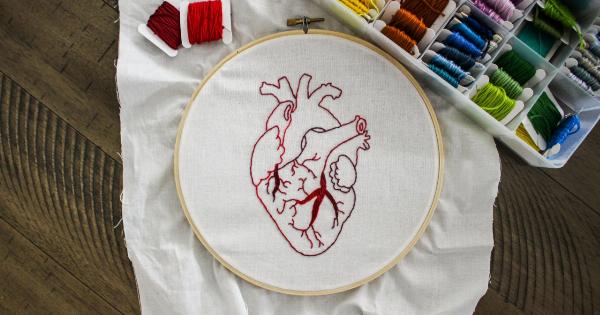When we think about maintaining a healthy heart, we tend to focus on factors such as avoiding smoking, reducing alcohol intake, increasing physical activity and eating a low-fat diet.
However, one aspect that often goes overlooked is the role of dietary fiber in cardiovascular health. Fiber is an essential component of our diet that is important for maintaining a healthy heart. In this article, we explore the importance of dietary fiber and how it can help protect your heart.
What is Dietary Fiber?
Dietary fiber is a type of carbohydrate that is found in plant foods. Unlike other carbohydrates such as sugars and starches, fiber cannot be broken down by the body.
This means that it passes through the digestive system largely intact, providing many health benefits in the process. There are two main types of dietary fiber:.
Soluble Fiber
Soluble fiber is a type of fiber that dissolves in water, forming a gel-like substance in the digestive tract. This gel helps to slow down the digestion process, which can help regulate blood sugar levels and lower cholesterol.
Soluble fiber is found in foods such as oats, beans, peas, lentils, apples, and citrus fruits.
Insoluble Fiber
Insoluble fiber is a type of fiber that does not dissolve in water. Instead, it passes through the digestive system largely intact, adding bulk to stools and helping to regulate bowel movements.
Insoluble fiber is found in foods such as whole grains, vegetables, and fruits.
The Benefits of Dietary Fiber for Heart Health
Studies have shown that a diet high in fiber can reduce the risk of heart disease by reducing the levels of bad cholesterol (LDL cholesterol) in the blood. Soluble fiber in particular has been found to be effective in reducing LDL levels.
This is because, when consumed, soluble fiber binds to cholesterol in the digestive tract, preventing it from being absorbed into the bloodstream.
In addition to reducing cholesterol levels, fiber also helps to regulate blood sugar levels. This is important because high levels of blood sugar can damage blood vessels, increasing the risk of heart disease.
By slowing down the digestion process, fiber helps to prevent spikes in blood sugar levels.
Fiber also plays a role in regulating blood pressure. High blood pressure is a major risk factor for heart disease, and studies have shown that diets rich in fiber can help lower blood pressure levels.
Furthermore, fiber helps to prevent the buildup of plaque in the arteries. This is because it binds with bile acids in the digestive tract, which are made from cholesterol.
When fiber binds with these bile acids, they are excreted from the body instead of being absorbed into the bloodstream.
Foods High in Fiber
Incorporating fiber into your diet is relatively easy, as it is found in a wide variety of foods. Some good sources of fiber include:.
- Whole grains such as brown rice, quinoa, and whole wheat bread
- Legumes such as beans, lentils, and peas
- Fruits such as apples, pears, bananas, and blueberries
- Vegetables such as broccoli, carrots, sweet potatoes, and spinach
- Nuts and seeds such as almonds, chia seeds, and flaxseeds
How to Incorporate More Fiber into Your Diet
The recommended daily intake of fiber is 25 grams for women and 38 grams for men. However, many people do not meet this target. Here are some tips to help you incorporate more fiber into your diet:.
- Swap white bread for whole grain bread
- Add beans or lentils to soups and stews
- Snack on fruits and vegetables instead of processed snacks
- Add nuts and seeds to salads and yogurt
- Choose whole fruit instead of fruit juice
Conclusion
Dietary fiber is an essential component of a healthy diet. It has many benefits for heart health, including reducing cholesterol levels, regulating blood sugar levels and blood pressure, and reducing the buildup of plaque in the arteries.
By incorporating more fiber into your diet, you can help protect your heart and reduce your risk of heart disease.






























